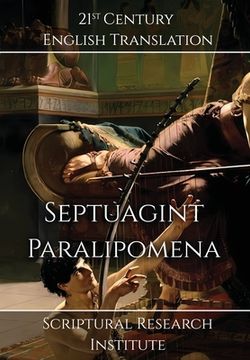Reseña del libro "Septuagint - Paralipomena"
The term Paralipomena, which means 'things left out, ' is a general translation of Divrei-hayyamim, which means 'things in the days.' The books are a collection of texts from various eras of Israelite history, spanning the era of the old Israelite Kingdoms, circa 1000 BC, through the Persian conquest, of circa 539 BC. Scholars have debated the origin of the books throughout their history, and there is no consensus within Rabbinical literature, Christian literature, or modern scholarship. The general Rabbinical view is that the two books of Paralipomena were written by one author, as Divrei-hayyamim, and then translated into Greek. The dominant early Christian view was that the books were written by Ezra the Scribe, circa 350 BC, however, this view was generally abandoned in Western Europe during the Protestant Reformation. Modern scholarly analysis has no consensus, however, the books do themselves indicate the eras they were compiled, nevertheless, the authors remain unknown.Based on the references within 2ⁿᵈ Paralipomenon to the Egyptian king Osorkon I as a Kushite, parts of the book must have been compiled sometime between 943 and 716 BC, when Egypt was part of the Kushite Empire, while later sections of 2ⁿᵈ Paralipomenon must have been compiled sometime after 539 BC when Cyrus the Great conquered the Babylonian Empire. The surviving Hebrew text of Divrei-hayyamim does, however, contain a reference to the Temple in Jerusalem as the 'Temple of the Gods, ' which means the original text of the book has to predate King Josiah's reforms of circa 625 BC, and likely predates King Hezekiah's similar reforms decades earlier. Both Hezekiah and Josiah are recorded as removing the idols of the gods from the temple, which had by all accounts been in the temple since it was built by King Solomon.

